Books
Books
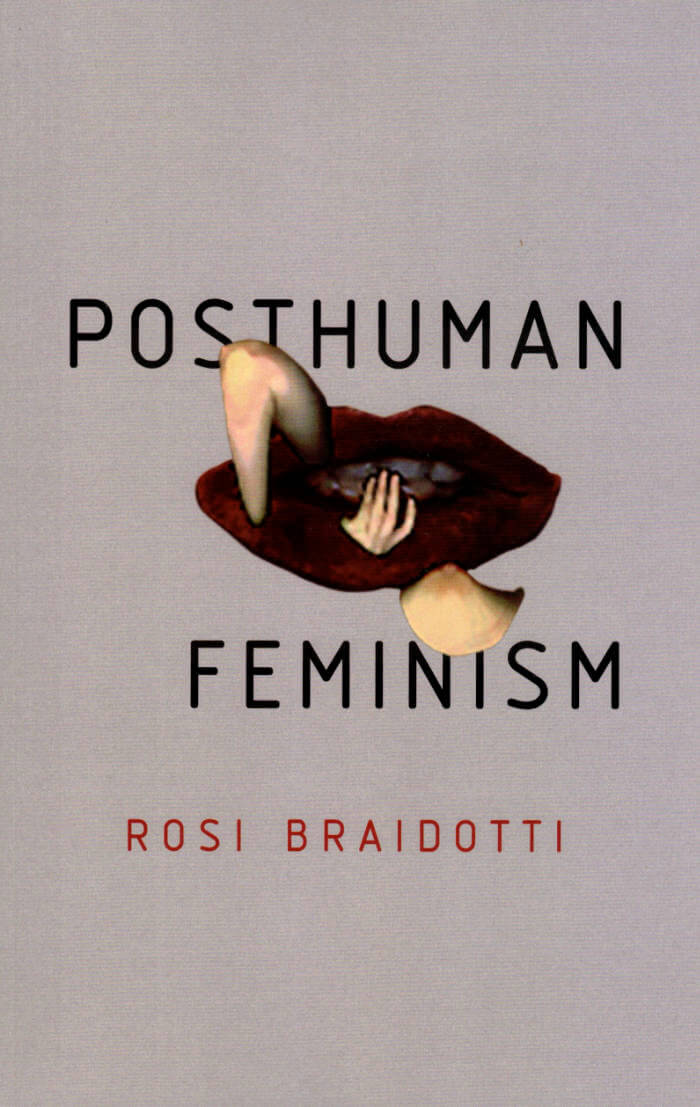
Posthuman Feminism
In a context marked by the virulent return of patriarchal and white supremacist attitudes, a new generation of feminist activists are continuing the struggle: these are very feminist times. But how do these and other movements relate to the contemporary posthuman condition?
In this important new book, Rosi Braidotti examines the implications of the posthuman turn for feminist theory and practice. She defines the posthuman turn as a convergence between posthumanism on the one hand and post-anthropocentrism on the other, and she examines their complex relationship and joint impact. Braidotti claims that mainstream posthuman scholarship has neglected feminist theory, while in fact feminism is one of the precursors of the posthuman turn, through diverse social movements and political traditions. Posthuman Feminism is an analytic and creative response to contemporary conditions and a call to action. It highlights the constraints but also the potentialities available to feminist political subjects as they confront the ever-growing injustices of sexism, racism, ecocide and neoliberal capitalism.
This bold new text by a leading feminist philosopher will be of great interest to students and scholars throughout the humanities and social sciences.

Piero Heliczer. Poems & Documents / Poèmes & Documents
Sophie Vinet, Benjamin Thorel and 1 more
Poet, editor, filmmaker, actor, child star in Mussolini’s Italy, founder of The Dead Language Press and of the Paris Filmmakers Cooperative, Piero Heliczer (1937–1993) was an essential yet secret agent of the 1960s and ’70s counterculture. In the course of his nomadic existence in Rome, New York, London, Amsterdam, Paris, and Préaux-du-Perche, where he spent the last few years of his life, he met and worked with a constellation of avant-garde writers, forged friendships with figures from the Beat Generation and the British Poetry Revival as well as the New York art scene. At the crossroads of many underground experiences, Heliczer’s name appears in books dedicated to the artists and poets he collaborated with during his lifetime—names by the likes of Gregory Corso, Barbara Rubin, Andy Warhol, Jack Smith, Ira Cohen, or The Velvet Underground, a band he participated in creating with his friend Angus MacLise.
This myth obscures the fact that Piero Heliczer was first and foremost a poet. Today, this part of his work is overlooked; it is all the more difficult to encounter because Heliczer himself never collected it. So it was scattered, or lost, in the course of his wanderings. Heliczer favored the circulation of his works rather than their archiving: he was committed to the production of mobile forms—flyers, broadsides, and other ephemera—disseminated his verses in magazines, and preferred public readings and performances to the finished form of the book.
The present volume gathers a significant number of Heliczer’s poetic works through facsimile reproduction of his contributions to more than thirty periodicals—mostly stemming from poets’ presses or universities—published between 1958 and 1979. This collection isn’t “complete”—but it makes available again poems that, in some cases, never circulated after their initial publication.
Un recueil de poèmes de Piero Heliczer (1937–1993), auteur, éditeur et cinéaste, figure de l’underground et de la contre-culture, proche de Andy Warhol, Gerard Malanga, et Jack Smith. Sa poésie, héritière de la Beat Generation, restitue en métaphores et images saisissantes des expériences et des visions personnelles, tout en s’appuyant sur des formes héritées de la tradition anglaise et des partis-pris typographiques originaux. Ce recueil rassemble des facsimilés des publications originales de poèmes de Heliczer – périodiques d’artistes, revues miméographiées, petits magazines… – accompagnées de leurs traductions en français, ainsi que de plusieurs documents, parmi lesquels une reproduction intégrale d’une publication rare de 1961, Wednesday Paper, et, en insert, un facsimilé d’un placard de 1975, The Handsome Policeman.
Traduction des poèmes: Rachel Valinsky
Publié avec l’aide du CNAP

The Buddhist
While ending an affair with a Buddhist teacher, Dodie Bellamy wrote about it simultaneously on her blog. This experiment in writing in extremis explores nuances of public shame, the vagaries of desire and rage, and Bellamy's confusion over the authenticity of group and individual spirituality. What is personal, what is public? In the electronic age, can anybody tell the difference?
The Buddhist celebrates marginalized subjectivity as enacted in the work of female artists from Bessie Smith to Eva Hesse and Carolee Schneeman, to Bhanu Kapil and Ariana Reines. The Allone Co. Edition contains the essence of the blog, as well as more extended narratives too explicit to post on line.
Design by Wayne Smith
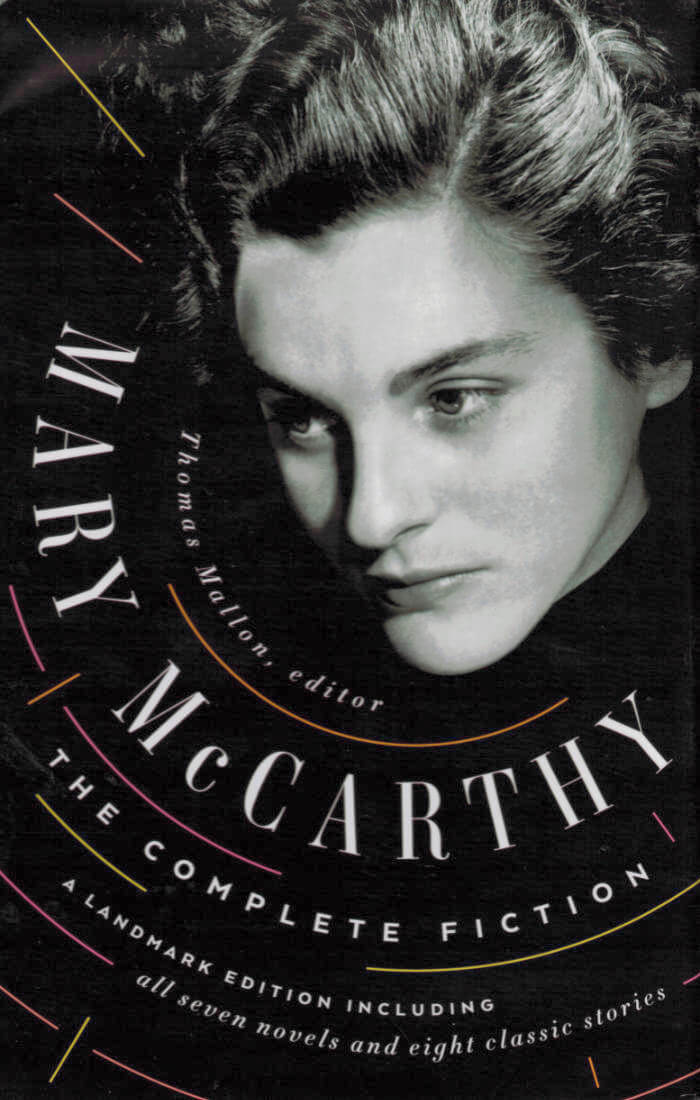
Mary McCarthy: The Complete Fiction
Seventy-five years ago Mary McCarthy provoked a scandal with her electrifying debut novel, The Company She Keeps (1942), announcing the arrival of a major new voice in American literature. A candid, thinly-veiled portrait of the late-1930s New York intellectual scene, its penetrating gaze and creative fusion of life and literature — mutual plagiarism, she called it—became the hallmark of McCarthy's fiction, which the Library of America now presents in full for the first time in deluxe collector's edition.
The Oasis (1949), a wicked satire about a failed utopian community, and The Groves of Academe (1952), a pioneering campus novel depicting the insular and often absurd world of academia, burnished her reputation as an acerbic truth-teller, but it was with A Charmed Life (1955), a searing story of small-town infidelity, that McCarthy fully embraced the frank and avant-garde treatment of gender and sexuality that would inspire generations of readers and writers.
In McCarthy's most famous novel, The Group (1963), she depicts the lives of eight Vassar College graduates during the 1930s as they grapple with sex, sexism, money, motherhood, and family. McCarthy's final two novels— Birds of America (1971), a coming of age tale of 19-year-old Peter Levi, who travels to Europe during the 1960s, and Cannibals and Missionaries (1979), a thriller about a group of passengers taken hostage on an airplane by militant hijackers—are both concerned with the state of modern society, from the cross-currents of radical social change to the psychology of terrorism.
Also included are all eight of McCarthy's short stories, four from her collection Cast a Cold Eye (1950), and four collected here for the first time. As a special feature, the second volume contains McCarthy's 1979 essay The Novels that Got Away, on her unfinished fiction.
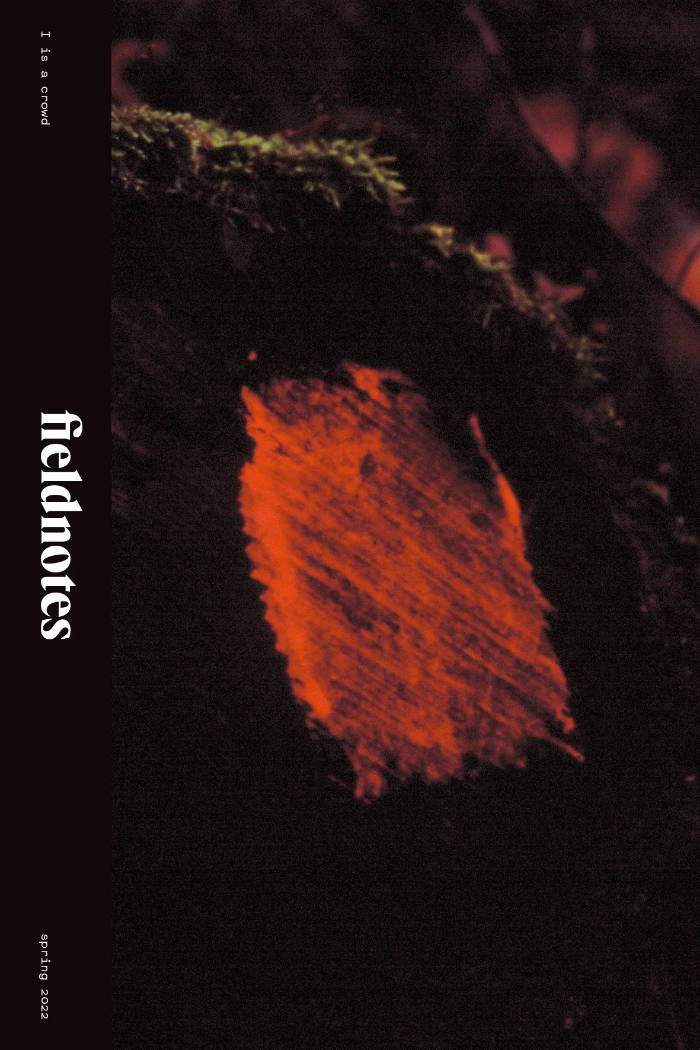
Fieldnotes Issue 3
Fieldnotes is a biannual print journal publishing new writing and artworks with a focus on practices that work between disciplines and against type. There is always a third thing between two things that are known; we are interested in whatever there is between translations/transitions, things-in-progress, converging genres, methods of excavation and formal innovation. The purpose of the journal is to provide a test site for ideas and research; a space for experimental modes and new prototypes.
The third issue of FIELDNOTES contains new work by:
CAConrad & George Finlay Ramsay
Charlie Hawksfield
Yvonne
Angus McCrum
Peter Gizzi
McKenzie Wark
Kate Paul
Michelle Williams Gamaker
Georges Bataille & Rachelle Rahmé
Declan Wiffen
Rosa Barba
Travis Jeppesen
Robert Glück & Arnold Kemp
Cecilia Pavón & Jacob Steinberg
George Lynch
Yuhan Shen
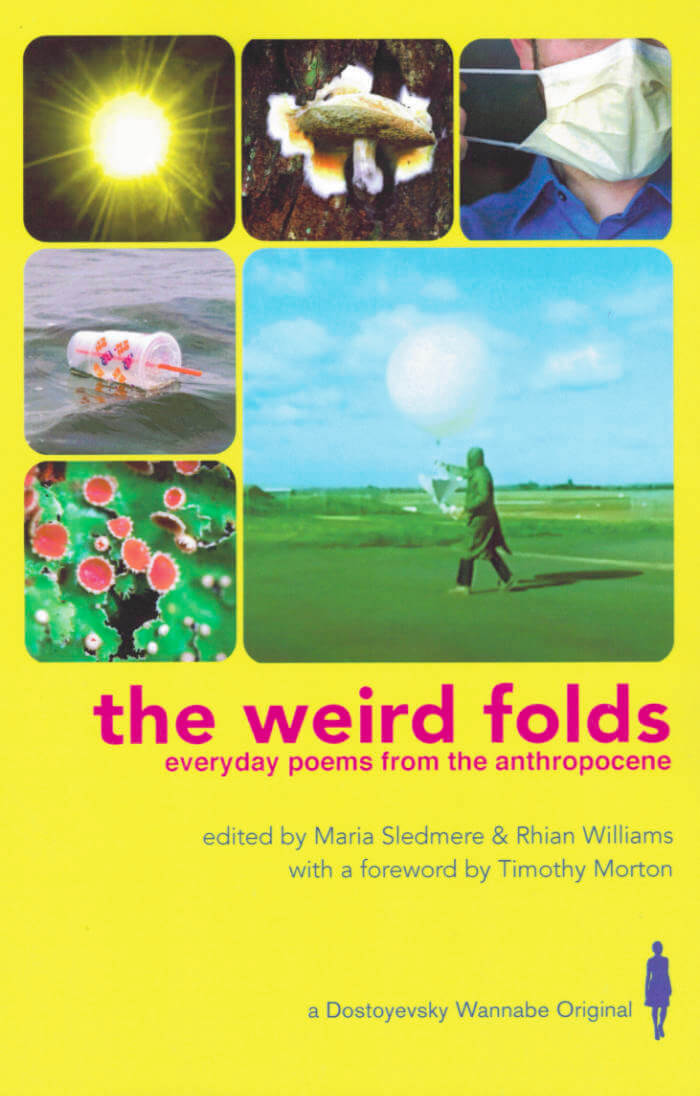
the weird folds: everyday poems from the anthropocene
Rhian Williams, Maria Sledmere
Edited by Maria Sledmere and Rhian Williams, the weird folds: everyday poems from the anthropocene is an edited anthology of poetry by contemporary UK writers, whose work manifests ecology in the body, in language, in lyric and colour and play. A book that arrives with its own weather, an acid-bright sense of urgency, detail and care; a book that speaks to a nowness that slides between crisis and the everyday arts of noticing which bear us through massive scalar change, survival and sorrow.
As Bernadette Mayer writes in 'The Way to Keep Going in Antarctica': 'Do not be afraid of your own heart beating / Look at very small things with your eyes / & stay warm'. Riffing on the etymology of 'anthology' as a gathering of flowers, this book samples from a luminous range of poets responding to 'the anthropocene' as a kind of thought device for grasping extinction, global heating and climate breakdown.
'Poems are the future sliding against the past', writes Timothy Morton in the book's foreword; these works perform the shimmering art of recognising the multiple temporalities, tenses and agencies, problems and potentials of this fraught term, 'the anthropocene'.
The weird folds intervenes in more traditional canons of nature and ecopoetry to offer a poetics of the anthropocene which is thoroughly generous, queer, sensuous, formally innovative, relational, occult, fugitive and critically sensitive to the mediations of technology and culture which shape our encounters with the more-than-human.
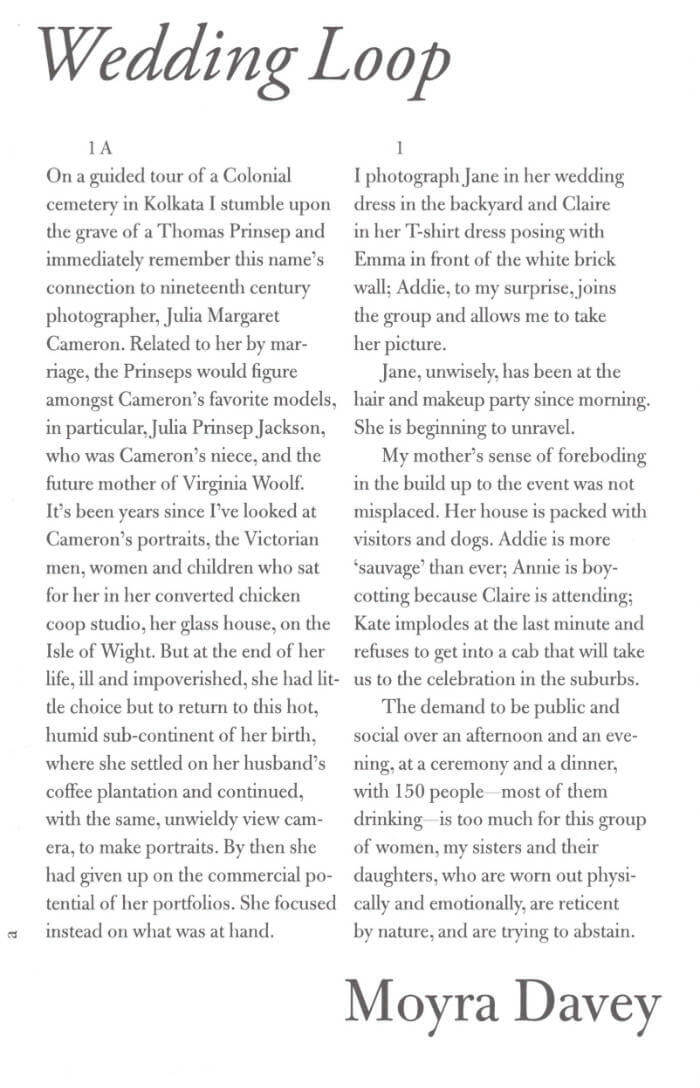
Wedding Loop
Edition on Moyra Davey's film Wedding loop, in which a wedding party is being reflected through the work of 19th-century photographer Julia Margaret Cameron.
Design by Will Holder

Eternal Now
An impressive title on Don Cherry's far and wide discography. On this date he went literally East, playing Tibetan and Asian instruments. The album was originally released in 1974 on the Scandinavian label Sonet and highlights a session of the previous year with famous Swedish jazz improvisers Bengt Berger and Christer Bothen.
Don Cherry (1936-1995), composer-trumpet player, flutist, percussionist and pianist, is an essential figure in American jazz, free jazz and avant-garde music.

Gut Feelings – Melodies and Aromas
With the vinyl recording of a musical, the artist proposes a new chapter in her project on fermentation as a living, palpable theory that blends body, feminism, and community.
Gut Feelings is a musical sung and performed by giant bacteria. It is a reference to lesbian separatist communities and more specifically to their capacity to create other forms and ways of life, outside of unliveable norms. The motif of fermentation here becomes a metaphor for the activity of a micro-organic and ungendered community, both human and non-human, alive, moving and changing form. In the manner of fermentation, this community in constant activity evolves autonomously, feeding itself and the space around it.
Louise Siffert (born 1988 in Strasbourg, lives and works in Paris) is a French performer. The world of work, alienation, the search for well-being, the place of habits: Louise Siffert's performances question and relate these current themes in theatrical and burlesque settings. Anchoring her work in scientific and sociological reflections, she creates characters with exacerbated personalities, overexploiting the codes of language and behavior that are attributed to them.
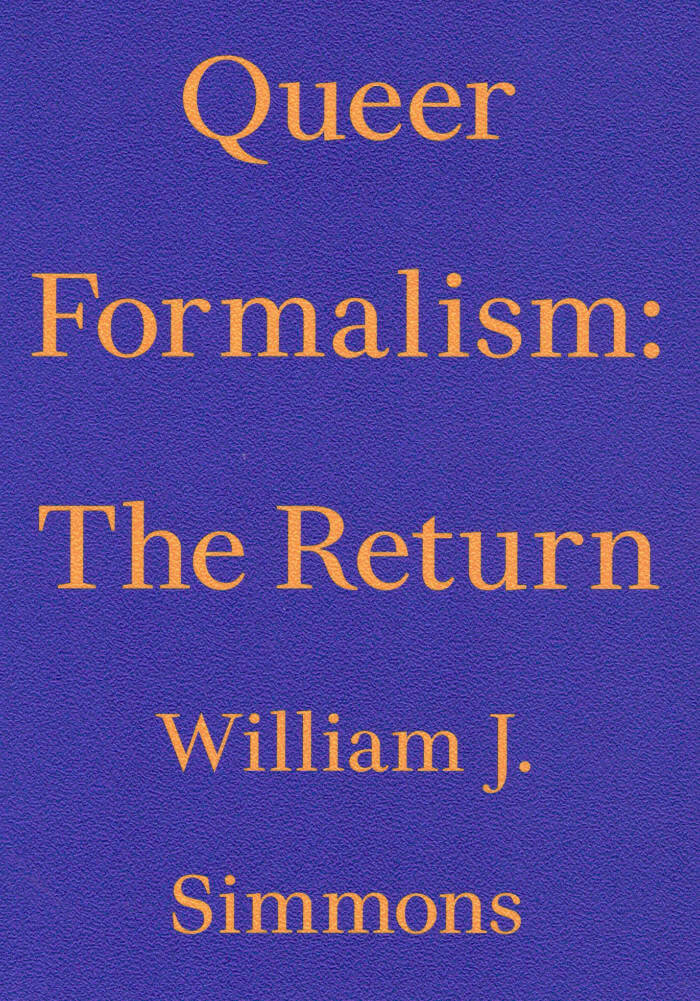
Queer Formalism: The Return
A new kind of queer art writing.
Queer Formalism: The Return expands upon William J. Simmons's original, influential essay “Notes on Queer Formalism” from 2013, offering novel ways of thinking about queer-feminist art outside of the critical-complicit and abstract-representational binaries that continue to haunt contemporary queer art. It therefore proposes a new kind of queer art writing, one that skirts the limits imposed by normative histories of art and film.
Artists addressed in Queer Formalism: The Return include: Sally Mann, David Lynch, Lars von Trier, Math Bass, Lorna Simpson, Laurie Simmons, Alex Prager, Lana Del Rey, Jessica Lange, and Louise Lawler, among others.

Radicalizing Care – Feminist and Queer Activism in Curating
Sophie Lingg, Elke Krasny and 3 more
What happens when feminist and queer care ethics are put into curating practice? What happens when the notion of care based on the politics of relatedness, interdependence, reciprocity, and response-ability informs the practices of curating?
Delivered through critical theoretical essays, practice-informed case studies, and manifestos, the essays in this book offer insights from diverse contexts and geographies.
Contributions by Edna Bonhomme, Birgit Bosold, Imayna Caceres, Pêdra Costa, COVEN BERLIN, Nika Dubrovsky, Lena Fritsch, Vanessa Gravenor, Julia Hartmann, Hitomi Hasegawa, Vera Hofmann, Hana Janečková, k\are (Agnieszka Habraschka and Mia von Matt), Gilly Karjevsky, Elke Krasny, Chantal Küng, Sophie Lingg, Claudia Lomoschitz, Cathy Mattes, Elizaveta Mhaili, Jelena Micić, Carlota Mir, Fabio Otti, Ven Paldrano, Nataša Petrešin-Bachelez, Nina Prader, Lesia Prokopenko, Patricia J. Reis, Elif Sarican, Rosario Talevi, Amelia Wallin, Verena Melgarejo Weinandt, Stefanie Wuschitz.

Haiku
Haiku originated in New York City in 1964, when Beat Generation poet Diane di Prima gave West Coast assemblage artist George Herms a series of seasonal poems that would lead him to create a suite of woodcuts illustrating them.
Diane di Prima (1934-2020) was a poet whose writing, activism, and organizing helped define the Beat Generation. She has published more than thirty collections of poetry, as well as memoirs and short stories. She was named Poet Laureate of San Francisco in 2009 and has received the National Poetry Association's Lifetime Service Award.
George Herms (born 1935 in Woodland, California) is an artist/alchemist whose work finding the beautiful in found and discarded objects has led to his being known as one of the founders of the West Coast “assemblage” movement. He has created jazz-inspired sculpture, installations, paintings, drawings, prints, and music all based on an ethics of discovery, rearrangement, and play.

Amazonia – Anthology as Cosmology
Kateryna Botanova, Quinn Latimer
Amazonia: Anthology as Cosmology is devoted to Amazonia, its peoples, allies, and nonhuman spirits, and their myriad material and immaterial practices, from certain cosmopolitics and visual languages to past and present forms of resistance.
Contributions by Maria Thereza Alves & the Association of the Movement of Indigenous Agroforestry Agents of Acre (AMAAIAC), Claudia Andujar, Denilson Baniwa, Christian Bendayán, Chonon Bensho, Rita Carelli, Enrique Casanto, Felipe Castelblanco, Carolina Caycedo, Taita Hernando Chindoy, Smith Churay, Víctor Churay, Tiffany Higgins, Márcia Wayna Kambeba, knowbotiq, Davi Kopenawa & Bruce Albert, Ailton Krenak, Gredna Landolt, Nereyda López, Renata Machado Tupinambá, Maurício Meirelles, Gerardo Petsaín, Aníbal Quijano, Maya Quilolo, Djamila Ribeiro, Abel Rodríguez (Mogaje Guihu), Pamela Rosenkranz, María Belén Saéz de Ibarra, Proyecto Cuenco de Cera (Bárbara Santos, Reynel Ortega & Stephen Hugh-Jones), Shoyan Shëca (Roldán Pinedo), Paulo Tavares, Daiara Tukano, Eduardo Viveiros de Castro, Santiago Yahuarcani...
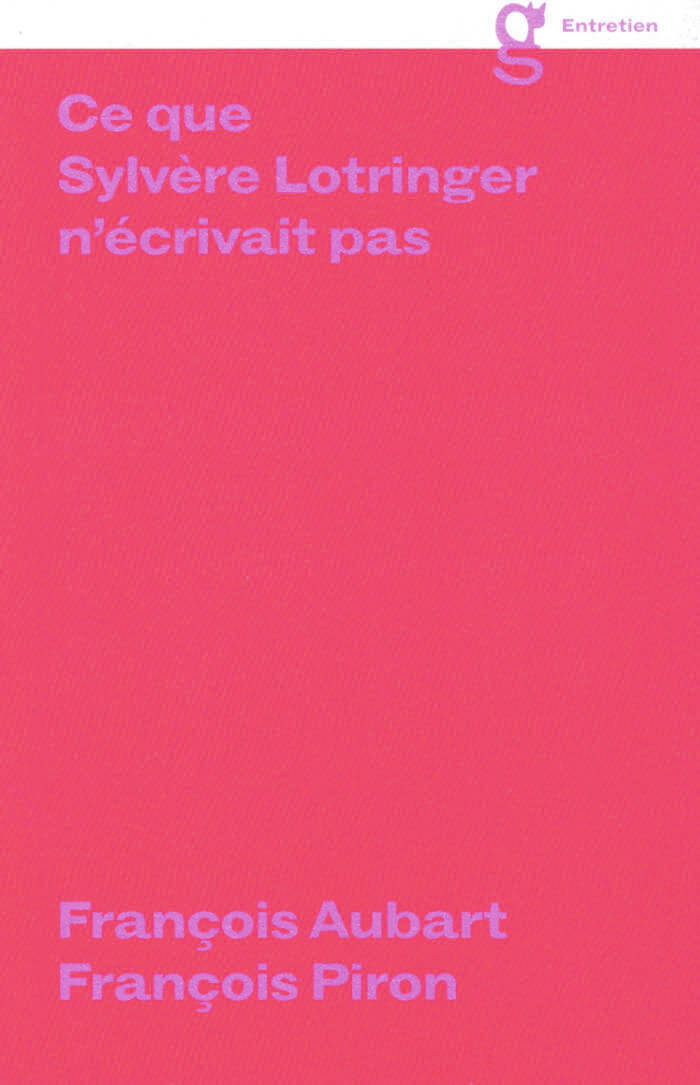
Ce que Sylvère Lotringer n'écrivait pas
François Piron, François Aubart and 1 more
A book of interviews with Sylvère Lotringer.
French philosopher Sylvère Lotringer (1938-2021) was the general editor of Semiotext(e). A younger contemporary of Gilles Deleuze, Félix Guattari, Jean Baudrillard, Paul Virilio and Michel Foucault, he was one of the main introducers and interpreters of French Theory in the United States. He is the author of Overexposed: Perverting Perversions (Semiotext(e), 2007).
François Aubart is an art critic, independent curator and publisher (co-founder of <o> future <o> and Même pas l'hiver).
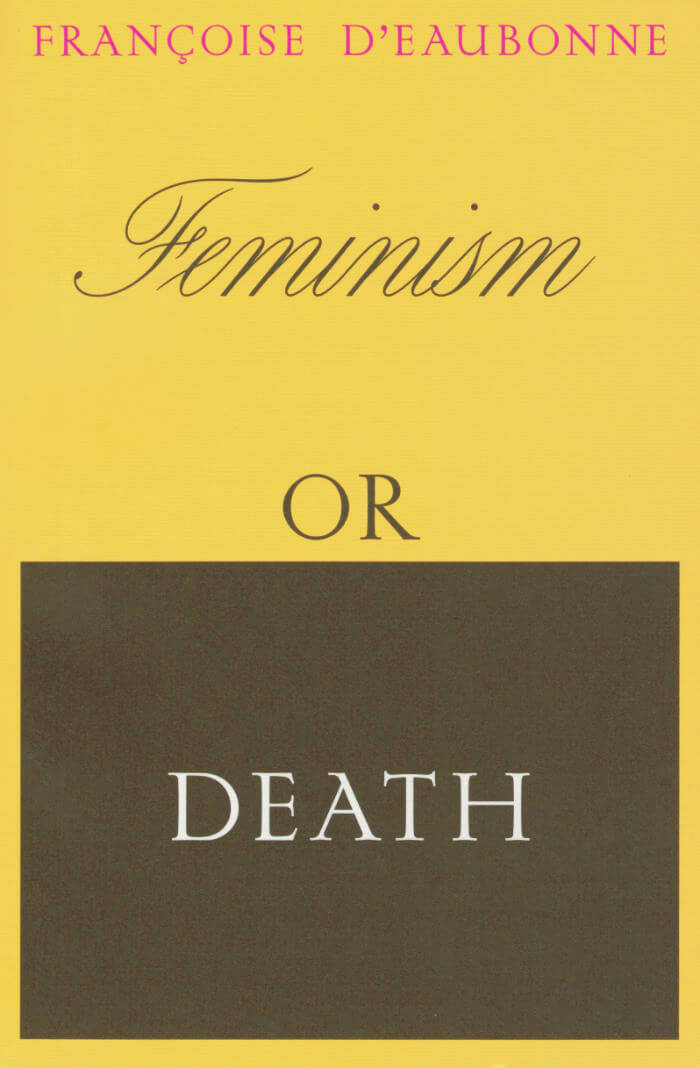
Feminism or Death
Originally published in French in 1974, radical feminist theorist Francoise d'Eaubonne's Feminism or Death surveyed women's status around the globe and argued that an internationalist feminism was not just about equality but about life or death - of humans and also of the planet.
D'Eaubonne first proposed a politics of "ecofeminisme," the idea that the patriarchal system also destroys the environment, and that feminism and environmentalism must be connected.
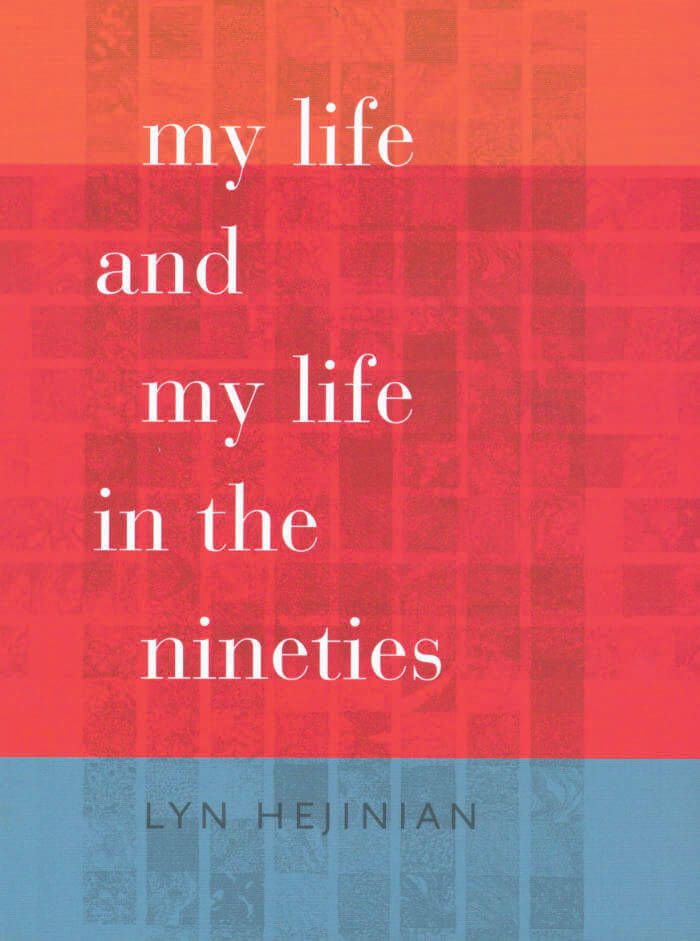
My Life and My Life in the Nineties
New edition of one of the founding works of Language writing.
Lyn Hejinian is among the most prominent of contemporary American poets. Her poem My Life has garnered accolades and fans inside and outside academia. First published in 1980, and revised in 1987 and 2002, My Life is now firmly established in the postmodern canon. This Wesleyan edition includes the 45-part prose poem sequence along with a closely related ten-part work titled My Life in the Nineties. An experimental intervention into the autobiographical genre, My Life explores the many ways in which language — — the things people say and the ways they say them — shapes not only their identity, but also the very world around them.

A Map to the Door of No Return: Notes to Belonging
A Map to the Door of No Return is a timely book that explores the relevance and nature of identity and belonging in a culturally diverse and rapidly changing world. It is an insightful, sensitive and poetic book of discovery. Drawing on cartography, travels, narratives of childhood in the Caribbean, journeys across the Canadian landscape, African ancestry, histories, politics, philosophies and literature, Dionne Brand sketches the shifting borders of home and nation, the connection to place in Canada and the world beyond.
The title, A Map to the Door of No Return, refers to both a place in imagination and a point in history — the Middle Passage. The quest for identity and place has profound meaning and resonance in an age of heterogenous identities. In this exquisitely written and thought-provoking new work, Dionne Brand creates a map of her own art.
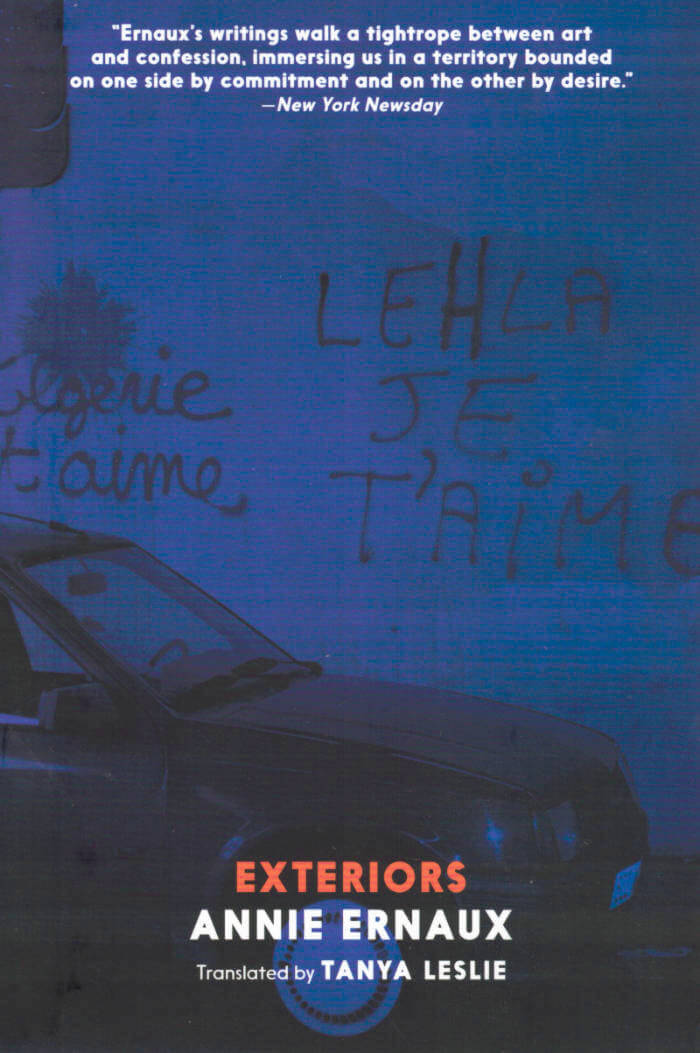
Exteriors
Taking the form of random journal entries over seven years, Exteriors captures the feeling of contemporary living on the outskirts of Paris. Poignantly lyrical, chaotic, and strangely alive.
Born in 1940, ANNIE ERNAUX grew up in Normandy, studied at Rouen University, and began teaching high school. From 1977 to 2000, she was a professor at the Centre National d'Enseignement par Correspondance. Her books, in particular A Man's Place and A Woman's Story, have become contemporary classics in France. She won the prestigious Prix Renaudot for A Man's Place when it was first published in French in 1984. The English edition was a New York Times Notable Book and a finalist for the Los Angeles Times Book Prize. The English edition of A Woman's Story was a New York Times Notable Book.

(Forced) Movement
What would be of contemporary culture if we did not recognize the impact of migration in cultural and socio-economic crossings? This book explores human migration in different times, contexts, and geographies surrounding the Aegean Sea. Through an assemblage of voices, lived experiences, historical documents, urban and rural dislocations, this publication examines responses to mobility of the ones on the move, and of the ones living in the destinations the former are heading to. It speaks of the sacrifices one is forced to make en route and at its antipode; the implications of voluntary migration to a place, steered by investment in real estate.
(Forced) Movement
by Antigone Samellas
Amygdalia
by Christina Phoebe
To live in the Borderlands means you
by Gloria Anzaldua
In the Great Mara River
by Liwaa Yazji
Real-Estate Cosmopolitanisms
by George Papam
Uprootings/Xerizomoi
by Nicolas Lakiotakis

Architectures of Healing
Today, many feel fettered by insomnia, untouchability, and restrictions on movement. Looking for a more holistic approach to bodily and mental health, this book explores architectures and elementary forms of care and healing in different time periods: from the powers of sleep, touch, and travel in Asklepieia, the ancient healing temples for divine dream encounters alleviating the pain of the ailing pilgrim; to the attentiveness carried through the healing touch from the establishment of Byzantine hospitals till our times; to a pilgrimage center in modern-day Lesbos on a personal search for healing from the traumas of war and patriarchy; to the liberating and self-preserving powers of sleep as a healing response to past and current systems of oppression.

HOOT nr. 6 — Vir Andres Hera
Gufo, Clément Faydit and 1 more
Été 2021, Vir Andrès est à Marseille, en résidence aux ateliers Triangle-Astérides. Nous somme aperçu-e-s furtivement à un banquet intilué "Le temps que l'huile se colore" que nous avons préparé avec les différent-e-s membres de l'ateliers Vé. Il y avait des bols de glace qui fondaient, des soupes et des préparations fruitées, à la coriandre, aux abricots, au fenouil, des brioches et des chapeaux en pain. Vir était accompagné d'ami-e-s. Il a demandé "Où est Gufo?" alors je lui ai proposé de nous rencontrer bientôt, dans son atelier. Nous avond regardé quelques vidéos: pendant l'une d'entre elles, j'ai fermé les yeux. Les voix étaient plurielles, avec des inclinaisons, des nuances, des accents. Nous avond alors discuté de la nécessité des oralités ondoyantes et multiples. L'invitation pour des conversations au sein de la revue était alors lancée.

HOOT nr. 5 — Grégoire Devidal
Rozenn Voyer, Clément Faydit and 1 more
Cet été j’ai rappelé un ami, Grégoire Devidal, pour lui demander de ses nouvelles depuis que nous sommes chacun·e parti·e d’Amsterdam où nous y avons partagé quelques années. Il m’a parlé d’un projet de podcasts avec Agathe Boulanger et Gwendal Raymond.
Ayant partagé des moments de vie, de création, de tension, de doutes et beaucoup de moments de travail, il m’est apparu comme une nécessité de proposer ce nouveau numéro de HOOT à ces trois artistes. La parole et l’écriture sont au centre de leur pratique et de leurs recherches. Je leur ai alors confié mon questionnaire habituel pour m’effacer de la trame de ces conversations et laisser place à une nouvelle forme de dialogue : celui qu'iels se partagent sans que je ne les écoute, sans que je n'intervienne. Iels parlent entre-elleux, se questionnent et se meuvent comme autant d’échos infinis sur des parois fluides. Leurs échanges m’ont évoqué ceux des personnages des Vagues de Virginia Woolf dans la manière dont ils s'interpénètrent, dont l’identité des orateur·rice·s valse et les échanges se relaient plutôt que se répondent.
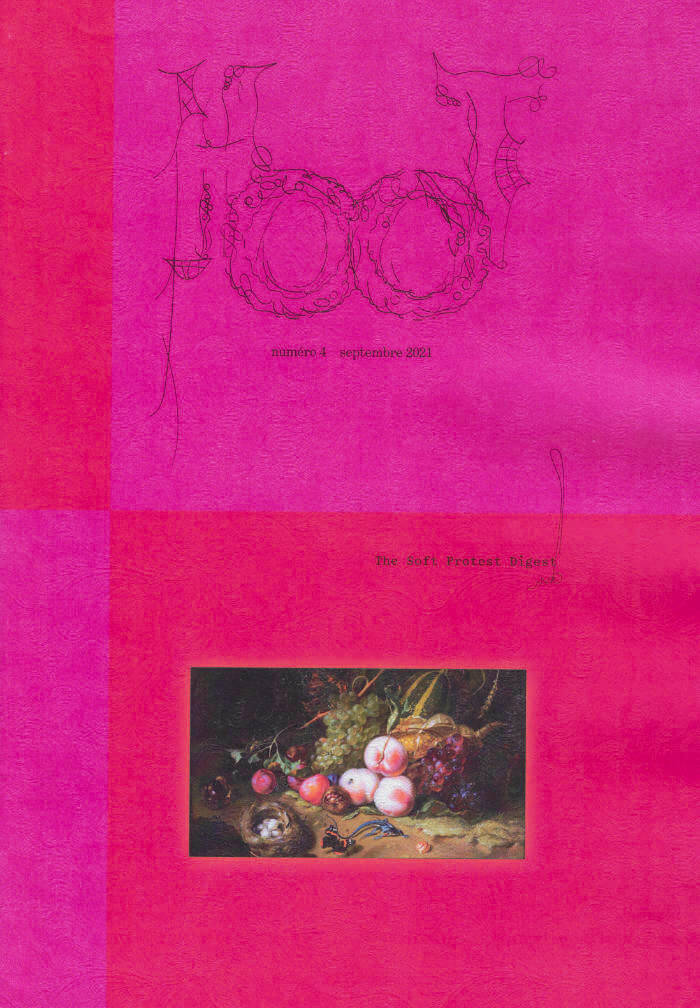
HOOT nr. 4 — The Soft Protest Digest
Gufo, Clément Faydit and 1 more
The Soft Protest Digest centre ses recherches sur l'histoire de l'alimentation, de l'agriculture et des liens sociaux et politiques qui constituent une culture alimentaire. Le collectif croit en l'utilisation de la narration comme moyen de créer ou d'adapter des traditions alimentaires, des recettes et des façons de se nourrir qui tiennent compte de l'héritage culturel et des liens émotionnels entre celleux qui mangent et la gastronomie locale, dans une quête de résilience alimentaire.
Gufo a souhaité rencontrer les membres de ce collectif afin d’explorer les nécessités alimentaires dans lesquelles s’inscrit The Soft Protest Digest. Et puis, très vite, une intrigue s’est créée autour du nom de ce collectif : qu’est-ce qu’une douce manifestation ? Quels sont les liens avec l’alimentation ? Pouvons-nous doucement contester ? C’est-à-dire sans frustration ni violence ? Ce nom a fait écho à une édition dont j’ai imprimé le titre il y a quelque temps, il s’agit de “Radical softness as a boundless form of resistance”* ( dont la traduction pourrait être Une douceur radicale comme forme infinie de résistance). Pouvons-nous associer douceur, résistance, radicalité et alimentation ? Gufo vous invite alors, à lire nos conversations qui divaguent mais surtout à imaginer des banquets partagés dont la joie et les ventres pleins seront les témoins d’onctueuses révoltes.

Sekxphrastiks
"How to write about a poet as honed? I wish for this magic in every book of poems I open, but it rarely is. Jane Goldman raps from inside our heads, do you get it, do you hear this, it is time to understand these things, these raw-lipped dadas without you-At the same time, her book pulls itself around us, and we get a new feeling about poetry, a subject we thought we knew well. I LOVE THIS BOOK!!! WOW RIGHT FROM THE START AND IT JUST GOES GOES GOES!!!" - CAConrad, author of While Standing in Line for Death (Wave Books, 2017)
Jane Goldman lives in Edinburgh and is Reader in English at the University of Glasgow. She likes anything a word can do. Her poems have appeared in a number of magazines and anthologies, as well as in the weird folds: everyday poems from the Anthropocene, edited by Maria Sledmere and Rhian Williams (Dostoyevsky Wannabe, 2020), and in the pamphlet, Border Thoughts (Sufficient Place/Leamington Books, 2014). SEKXPHRASTIKS is her first full length collection.